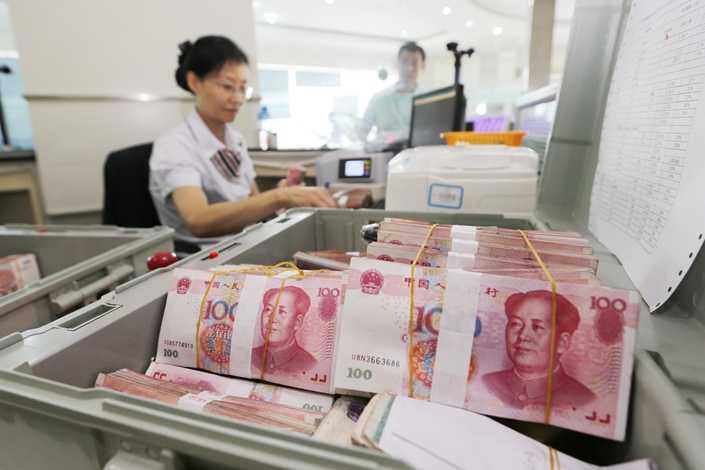China’s Financial Support Measures May Not Be Working as Intended, Analysts Say

China’s financial regulator has ordered banks to lower interest rates and allow delayed repayment of loans to help small and midsize companies impacted by the outbreak of the coronavirus.
However, the measures are not working as intended, bankers and analysts say, as the move could heighten financial risk in the banking sector and add to small business debt.
Under the latest directives, banks heeding Beijing’s call to support small and medium-sized companies during the outbreak could make problematic loans to firms that might not meet their standards under normal circumstances. While that might help such firms stay in business another month or two, it could also weaken banks by forcing them to offer lower interest rates and make loans with higher risk. The money could also be wasted if companies cannot quickly return to normal business levels.
Since December, China has been grappling with an outbreak of a novel coronavirus, which has infected at least 31,211 people on the mainland as of 10 a.m. on Friday. Companies have been forced to delay resumption of work after an extended Lunar New Year holiday, and are losing customers amid fears over the virus.
The outbreak has hit small businesses especially hard, with most saying they are suffering a severe cash crunch. A joint survey (link in Chinese) of 995 small and midsize companies by Tsinghua University and Peking University showed that 34% of respondents said they can only survive for one month with their current savings. 33.1% of the companies said they can survive for two months, and 17.91% said they could last three months.
To alleviate short-term cash flow challenges, authorities on Feb. 1 instructed (link in Chinese) lenders to rollover the loans of companies that have trouble repaying their debts as a result of the outbreak.
However, a customer manager at a rural commercial bank in southeastern China told Caixin that their bank had intentionally added application procedures to delay approvals in order to avoid risks that could damage the bank’s business performance.
Regulators also instructed banks to allow more small businesses to renew their working capital loans without first repaying their original loans.
Banks have lowered the threshold for small businesses to apply for so-called “refinancing,” a person in charge of small business lending at a major bank told Caixin. But lenders usually audit applicants for risk management purposes, and some businesses may not qualify for relending, the person said.
Other supportive policies rolled out by authorities include reductions in interest rates for companies that make or sell urgently needed medical supplies and daily necessities.
Banks have also been required to simplify and speed up the approval process to grant credit to such companies, especially those that produce protective masks, suits and coronavirus test kits, a person at a joint-stock bank with knowledge of the matter told Caixin.
But for other businesses such as restaurants and logistics companies, banks are more hesitant to approve low-interest loans and the process is slower than businesses expected, the person said.
Coercing banks to lend to companies in financial trouble doesn’t help either, wrote Liu Xiaochun, a vice president of the Shanghai Finance Institute, in an article (link in Chinese) published Wednesday.
That’s because such loans won’t solve the real issue of these companies face — shrinking sales due to production suspension. Lending more to them will just let them accumulate debt, increasing their risks.
And for banks, giving out such loans at the demand of the government increases their own risks, ironically reducing their motivation to support such companies to resume production when they are able.
Under this scenario with a slowing economy, the central bank will be under pressure to lower interest rates, meaning banks will face greater pressure to control risks, the rural commercial bank manager said. And further deregulation, such as loosening approval processes for companies to get loans, will add to banks’ difficulties in the years to come.
Contact reporter Tang Ziyi (ziyitang@caixin.com) and editor Gavin Cross (gavincross@caixin.com)
Caixin Global has launched Caixin CEIC Mobile, the mobile-only version of its world-class macroeconomic data platform.
If you’re using the Caixin app, please click here. If you haven’t downloaded the app, please click here.





